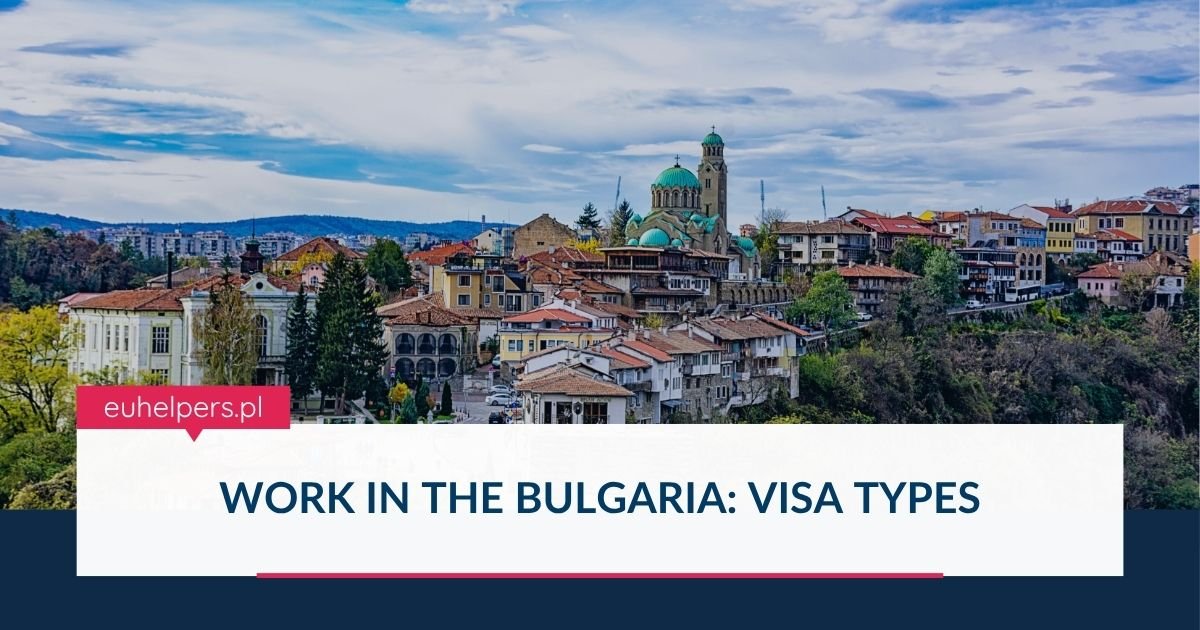Foreign nationals planning to live and work in Bulgaria must navigate a well-defined visa and permit process. Whether you’re seeking employment, pursuing education, or relocating for family or business reasons, understanding Bulgaria’s visa system is essential. The primary route for long-term employment is through the Type D Long-Stay Visa in conjunction with a work permit. Here's a detailed overview of the key visa categories and requirements.
1. Type D Long-Stay Visa
Purpose:
The Type D visa is Bulgaria’s main long-term visa, required for stays exceeding 90 days. It is most commonly used by individuals coming to Bulgaria for employment, study, research, or family reunification.
Eligibility and Requirements:
-
A secured job offer from a Bulgarian employer
-
A valid work permit issued by the Bulgarian Employment Agency
-
Proof of qualifications, housing, and financial means
-
Health insurance coverage
Validity:
The Type D visa is typically issued for 6 or 12 months, depending on the nature of the stay.
Who Needs It:
-
Foreign nationals with employment contracts in Bulgaria
-
International students enrolling in Bulgarian institutions
-
Researchers, investors, retirees, and family members of residents
Application Process:
Applicants generally need to first obtain a work permit, after which they can apply for the Type D visa at a Bulgarian embassy or consulate in their home country. Once in Bulgaria, visa holders must register with local authorities and apply for a residence permit.
2. Work Permit
Purpose:
A work permit authorizes foreign nationals to legally work in Bulgaria and is usually a prerequisite for obtaining a Type D visa for employment purposes.
Issuing Authority:
Bulgarian Employment Agency
Requirements:
-
Employer sponsorship
-
Relevant qualifications and experience
-
Employment contract and job details
-
Compliance with labor market conditions
Types of Work Permits:
-
General Work Permit – For most foreign workers hired directly by Bulgarian employers
-
EU Blue Card – For highly skilled non-EU professionals meeting specific salary and education criteria
-
Intra-Corporate Transferee Permit – For employees of multinational companies being transferred to a Bulgarian branch
3. Other Bulgarian Visa Types
Type A Visa (Airport Transit)
-
Purpose: For non-EU travelers transiting through a Bulgarian airport en route to another destination
-
Duration: Valid only for short layovers; does not permit entry into Bulgaria
Type C Visa (Short-Stay Visa)
-
Purpose: Allows short stays of up to 90 days within a 180-day period for tourism, business, or personal reasons
-
Important Note: This visa does not allow employment or long-term residence
Other Type D Visa Purposes
Besides employment, the Type D visa is also issued for:
-
Family reunification with Bulgarian citizens or residents
-
Study and academic exchange
-
Investment or business establishment
-
Retirement for individuals with stable financial resources
For anyone looking to build a professional life in Bulgaria, the combination of a Type D Long-Stay Visa and a work permit is essential. By securing a job and meeting the application requirements, foreign nationals can begin the process of legally living and working in Bulgaria. It’s also important to understand the other visa categories, as they provide flexibility for short visits, business activities, and family relocation.

